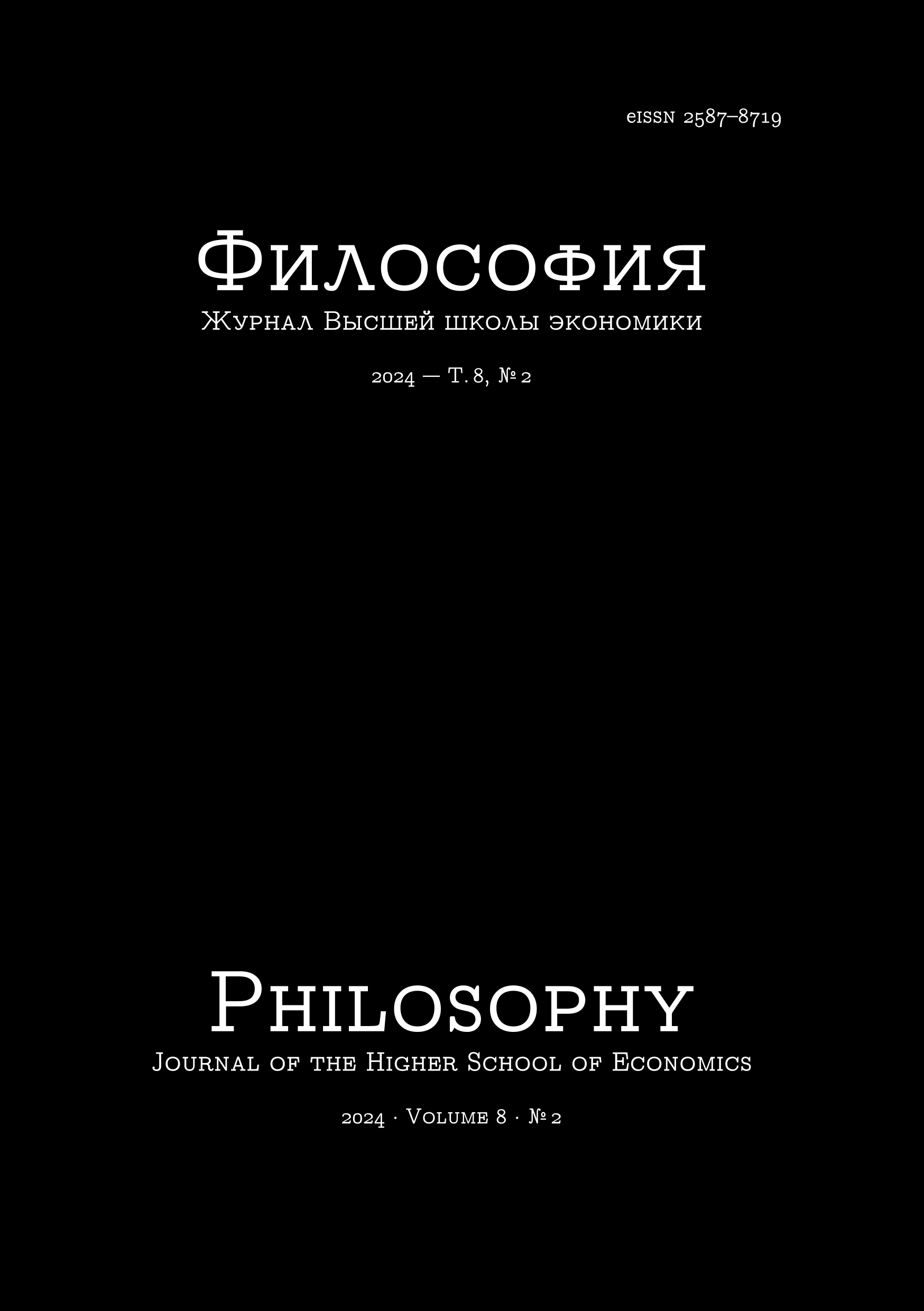The Unstable Ecosoma
Virtuality and Ethics of the Immune Body
Abstract
This paper investigates the concept of the virtual and its relationship to ethics, focusing on how it defines selfhood and individuality. First, the author examines the conceptualization of the virtual in contemporary philosophy. The author then shows how the ethics of the virtual deconstruct the dichotomy of subject/world and reveal the ontological field of peaceful coexistence of various forms and ways of life. The author argues that the world where the virtual is more primordial than the actual is decentralized and not focused on the human understanding of reality, and that human reality within it is nothing but a product of non-human processes. Next, the author turns to the enactivist concept of immunity and explores Francisco Varela's idea of virtual, impersonal selves as constituents of the psychosocial human «I». In this perspective, the author argues that organic autonomy is not a product of aggressive differentiation or defense of oneself from others but a dynamic interaction process that questions the idea of atomized, egocentric individuality. The author then highlights the individuation of the individual and how it involves them in the material processes of the body, environment, and technology, testifying to the primacy of the virtual over the actual. This lays the foundation for bioethics of peaceful coexistence of interacting living systems immersed in life-worlds, contrasted with the necropolitics of current social interactions.
Downloads
Copyright (c) 2024 Philosophy Journal of the Higher School of Economics

This work is licensed under a Creative Commons Attribution-NonCommercial 4.0 International License.






